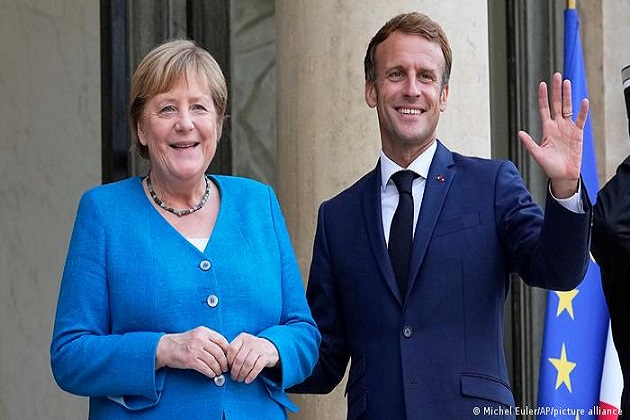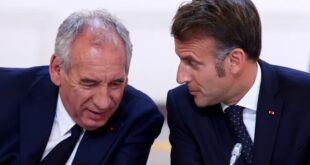
Angela Merkel is about to walk off the European Union stage — and it’s about time, says DW’s Cristina Burack. The EU needs to break with her reactive style to meet the challenges it’s facing.
After the German election on September 26, when Merkel finally steps down after 16 years as chancellor, the European Union will say goodbye to its longest-serving head of government.
Put plainly, Merkel’s been a major player at the EU level for a long time. She has seen and handled her fair share of crises in the bloc, and she’s ultimately helped keep the EU together in some of its most divisive hours.
Yet despite always pulling for Team EU at the end of the day, Merkel has often only taken action after evading decision-making for as long as feasibly possible. And lest anyone doubt how definitive this style of hers is, there’s a slang German verb for being indecisive and not doing anything: it’s called « merkeln. »
16 years of reactive policy
While Merkel has been a dependable rhetorical advocate for the ideological value of the EU, many of her decisions at the EU level were the stuff of feet-dragging, last-minute turnarounds or even of no other option left.
That doesn’t mean they weren’t uncontroversial or even sometimes bold. During the eurozone and Greek financial crisis, Merkel eventually countered both her conservative party’s dogma of tight spending controls and German popular sentiment to bailout the Greek government. But only after first insisting that such a move was off-the-table and stringing out action until the whole bloc teetered on the brink of a system-shattering debt default.
The harsh austerity conditions of the Greek bailouts and aid packages to other struggling southern Mediterranean nations also led to criticism that Merkel was imposing the « German way » on other countries — not exactly a sentiment that fostered EU solidarity. I remember conversations in my own Spanish family that were tinged with resentment over Germans continuing to benefit from the low costs in Spain on their package beach vacations while Spaniards were seeing public spending slashed and unemployment skyrocket.
Then, in 2015, when millions of Syrians asylum-seekers sought safety in Europe, Merkel made the politically courageous and morally correct decision not to close Germany’s borders. But this was still reactive, occurring only after attempts to agree upon an EU-wide refugee distribution system had failed and overwhelmed EU nations like Hungary allowed tens of thousands of asylum-seekers to travel onward to Germany’s southern border.
Most recently, her yes to « coronabonds, » or debt shared at the EU level — anathema to Merkel throughout her time as chancellor — came only after many no’s that initially persisted even in the face of an unprecedented pandemic-spurred economic shutdown.
As a conservative, Merkel is by definition set on maintaining the status quo. She’s unwilling to take a step forward until she’s got her back up against a wall. But while this has helped keep the EU lumbering along so far, it is no longer enough.

World Opinions – DW ENG




 World Opinions Débats De Société, Questions, Opinions et Tribunes.. La Voix Des Sans-Voix | Alternative Média
World Opinions Débats De Société, Questions, Opinions et Tribunes.. La Voix Des Sans-Voix | Alternative Média




